Lessons learnt by executive education alumni

Roula Khalaf, Editor of the FT, selects her favourite stories in this weekly newsletter.
Dave Schechter
American. Stanford GSB, US, Interpersonal Dynamics for Executive Leaders, 2018.
Vice-president, footwear for AirMax, Nike, Oregon
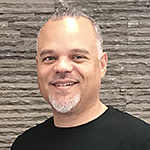
What was your experience of the course?
The practical nature and application of this course stood out. I wanted to see how we are driving leadership in the company compared with how others are doing it. The phrase “you get out what you put in” was really evident. Some of us spent the time on preparation, did all the pre-reading — I soaked it all up. But my approach was different from others, who maybe had the course suggested to them and had different goals.
This is a course that I leverage every day in my job. It’s real-world relevant: how to be open, honest, not being defensive about receiving feedback. These are things I wish everybody had the opportunity to be exposed to. It has made me a better leader. Being a leader is a lifetime of learning; knowing there are other folks outside the company going through the same things you are is reassuring.
Lee Jones
British. Cranfield, UK, programme manager masterclass, 2018.
Programme manager, Worldline, Nottingham
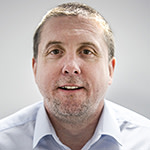
What was the impact of the course on your career?
I had been a project manager for a number of years and I was trained to think tactically, focusing on timescales, quality and cost. I was nominated for this course because I was heading towards the programme manager role. I now have to think strategically and my sphere of influence is wider; I can see the projects at a higher level. Some concepts I was already familiar with as a project manager, but some were new and stretched me. We had tutor-led sessions and then role-play exercises, in a safe but pressurised environment. The course took place in Munich, Paris and Cranfield and we had colleagues from all over the world on the course, so there were different cultures and communications challenges. Throwing all that in was realistic for our day-to-day jobs, as it modelled our real world.
Financial Times Executive Education rankings 2019
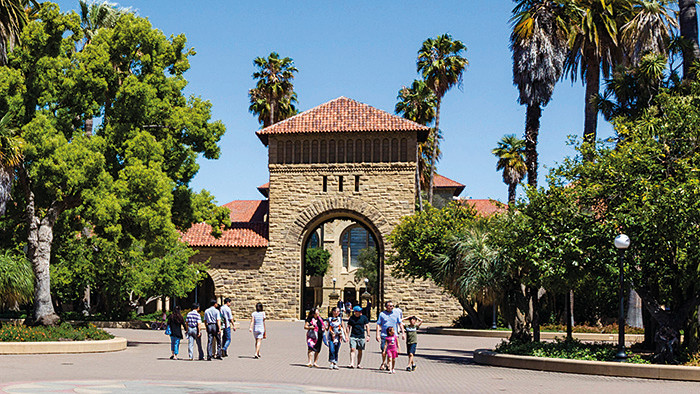
Which schools are in the top 80 for Customised and Open-enrolment programmes 2019? Find out which schools are the top 50 providers for both custom and open courses. Also, learn how the tables are compiled.
Markus Furtwängler
German. ESMT Berlin, Executive Leadership Program, current.
Senior specialist, HR, Brose, Germany
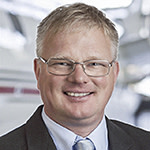
What sets this course apart?
I am responsible for leadership development at Brose and have participated in all of the programmes we offer. We came up with our demands and together with ESMT designed a programme.
The courses we had before this all failed: they were boring and missed the point. This time, participation is voluntary.
The programme has been designed by the business rather than human resources and there is a strong individual element — people can choose additional courses beyond the core options. We also give participants continued support after the course. This was initiated by ESMT or by me, but now participants have formed peer groups and ask for guidance.
Brose is a very German-orientated company so the school fits well, but we have to bring in more employees from different regions in future.
Alisha Thompson
American, University of Toronto Rotman School of Management, Strategic Negotiations Program, 2017.
Senior Director, Global Digital Center of Excellence and Business Intelligence, Domtar, Raleigh, North Carolina
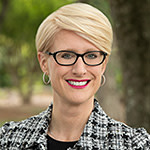
What did you learn from the course?
I felt like I needed to reassess my negotiation skills. We went through single party and dual party negotiation, every type of scenario, and you get to practise on each side of the bargaining table. I learnt a lot about what not to do, and have used these techniques in business and my personal life. I am now much more open to listening and it has made me a better negotiating partner when I work with major suppliers. Every year I have taken an executive class at Rotman because they are on the edge of research, they have a diverse skill set and a group of teachers, alumni and guest speakers with many rich perspectives. I am doing a course this year in financial literacy and analysis, and it’s probably the one I am most uncomfortable with because I don’t have a background in it.
Ketul Kotecha
Australian. AGSM at UNSW Business School, Australia. General Manager Programme, 2018.
Chief digital officer, Advara, Perth
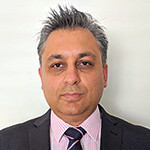
Why did you choose to take an executive education course?
If it wasn’t for a young family I would have done an MBA because it is more comprehensive in what it covers, but I couldn’t due to work and personal commitments. I started to dissect the courses in the MBA and pick the things I really wanted to do as a step up for my education, working it through with the chief executive. The company has been really encouraging and has paid for a lot of the courses. One thing I learnt was how bias influences our decision-making.
Throughout our management team I introduced a concept of checking our biases before making a decision. A simple thing like that — being aware of how you make your decisions — has been beneficial. The course wasn’t just focused on material practices and tool kits, it was focused on us. Rather than being theoretical, it looked at you as a person and helped us to leverage each other’s experience.
Comments